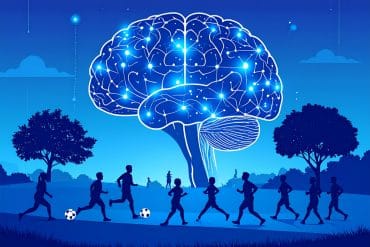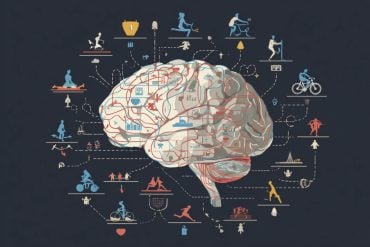Summary: A new study measures changes in psychosocial attitudes after people drink beer.
Source: ECNP.
Study measures changes in psychosocial attitudes after beer drinking.
What does drinking beer really do? A new study has shown that drinking beer affects the way we see specific emotions and allows us to see happy faces faster. It also has surprising effects on sexual perception. These results are presented at the ECNP Conference in Vienna.
Although the vast majority of adults have direct experience of drinking alcohol, there is surprisingly little scientific data on the effects of alcohol on the processing of emotional social information or on sexual arousal, and no data on the effects of alcohol on empathy. Now researchers from the University Hospital in Basel, Switzerland, have attempted to answer some of the questions around the way alcohol alters the way we relate to others, and how alcohol affects sexual arousal.
In a double-blind, random-order, cross-over study, researchers enlisted 60 healthy participants (30 men, 30 women) aged between 18 and 50.They then gave 30 of them a glass of alcoholic beer (0.5L depending on body weight and sex). This raised their blood alcohol content to around 0.4 g/L Thirty control subjects were given non-alcoholic beer.
The subjects then underwent a range of tasks, including a face recognition test, empathy test, and sexual arousal test. At the end of the tests, the subjects and controls were switched and the process repeated. The main results they found were:
- Drinking beer helps people see happy faces faster.
- It also increased the tendency to want to be with others in a happy social situation
- These effects were greater in women than in men, but were also greater in those who had previously shown some social inhibition
- It made it easier for people (especially women) to view explicit sexual images, but it didn’t seem to lead to greater sexual arousal.
The researchers also found that ‘before and after’ levels of the hormone oxytocin did not change. (oxytocin is thought to mediate aspects of social cognition and is involved in bonding).
Lead researcher, Professor Matthias Liechti (University Hospital, Basel) said:
“The effect of many medications and substances of abuse have been tested on various tests of emotion processing and social cognition. However, although, many people drink beer and know its effects through personal experience there is surprisingly little scientific data on its effects on the processing of emotional social information. We found that drinking a glass of beer helps people see happy faces faster, and enhances concern for positive emotional situations. Alcohol also facilitates the viewing of sexual images, consistent with disinhibition, but it does not actually enhance sexual arousal. These effects of alcohol on social cognition likely enhance sociability”.

Commenting, Professor Wim van den Brink (Amsterdam), past Chair of the ECNP Scientific Programme Committee, said:
“This is an interesting study confirming conventional wisdom that alcohol is a social lubricant and that moderate use of alcohol makes people happier, more social and less inhibited when it comes to sexual engagement. The sex differences in the findings can either be explained by differences in blood alcohol concentration between males and females with the same alcohol intake, differences in tolerance due to differences in previous levels of alcohol consumption or by socio-cultural factors. It should also be recognized that different effects of alcohol can be seen according to whether your blood alcohol is increasing or decreasing, and of course how much alcohol you have taken. Finally, as Shakespeare noted**, alcohol-related emotions and cognitions as studied are not always consistent with actual behaviors”.
Funding: Research funded By the University Hospital Basel.
Source: ECNP
Image Source: This NeuroscienceNews.com image is in the public domain.
Original Research: The study will be presented at the annual ECNP Congress, 17th to 20th September, Vienna.
[cbtabs][cbtab title=”MLA”]ECNP. “Drinking Beer Helps People See Happy Faces Faster.” NeuroscienceNews. NeuroscienceNews, 19 September 2016.
<https://neurosciencenews.com/prosocial-attitude-beer-5073/>.[/cbtab][cbtab title=”APA”]ECNP. (2016, September 19). Drinking Beer Helps People See Happy Faces Faster. NeuroscienceNews. Retrieved September 19, 2016 from https://neurosciencenews.com/prosocial-attitude-beer-5073/[/cbtab][cbtab title=”Chicago”]ECNP. “Drinking Beer Helps People See Happy Faces Faster.” https://neurosciencenews.com/prosocial-attitude-beer-5073/ (accessed September 19, 2016).[/cbtab][/cbtabs]






